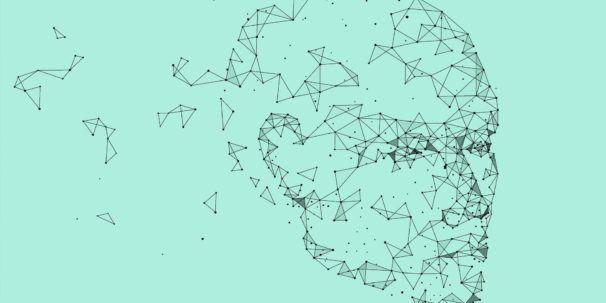
During the 1850s a war over slavery split the North from the South. This caused Americans to split over whether or not to allow slavery in newly acquired western territory. Congress created the military Reconstruction program in 1867 to enforce political rights for Southern blacks. This was a significant shift in American politics.
Andrew Johnson served the 17th President of the United States. He was born Raleigh in North Carolina. He was poor as a child and had never been to school. He worked as a tailor before entering politics. He became an advocate of state's rights. He also advocated for the swift restoration of Southern countries to the Union.
In 1866, Johnson launched a campaign to win support for Reconstruction policies. He traveled to various cities to make speeches. He was critical of the Republican policies. He was also accused in some quarters of being an alcoholic. He was not reelected in 1868.

Radical Republicans challenged Andrew Johnson's policies often. They argued that his policies were too permissive and wouldn't result in complete equality for blacks. They believed that black voters were crucial to the South's power base. They wanted the Confederates to be punished by making North resources and resources unobtainable to them. He also called on the Southern states to reject the 14th Amendment which granted black citizenship. He opposed a bill to ratify Civil Rights Act, which was meant to end discrimination against African-Americans. He also vetoed the bill to create the Freedmen's Bureau.
Andrew Johnson was also the only Southern senator to stay loyal to the Union during the Civil War. He was the only senator to serve the Civil War duration. He was also the South's only senator to not have voted for secession. This made him a traitor towards the South. He was also the only senator from the South who was not impeached.
Congress passed the first Reconstruction Act in 1865 to divide the South into five separate military districts after the Civil War was over. The Tenure of Office Act, which deprived the President of his power to remove federal officials without approval from the Senate, was also passed. Additionally, the Congress refused seats for newly elected Southern members.
Congress returned in December 1865 and passed the Freedmen's Bureau Bill. It provided shelter for previously enslaved people and women, and gave them suffrage. However, the House of Representatives in February 1868 voted to impeach Johnson. In May 1868, he was acquitted with one vote. He was not convicted at the Senate.

Johnson was criticized for being too prejudiced and for miscalculating the support he received from the public during his term as President. Throughout his presidency, he attacked Republicans in vile language and appeared to have too much to drink on several occasions. While he didn't win re-election for his first term in office, he was elected vice president in 1865.
FAQ
How does the brain control the functions in your body?
The brain relays messages to other parts of the body to ensure their functionality. Everything in your body is controlled and managed by your brain. It tells the stomach to digest food, and the lungs to breath air. It also tells your legs and arms to move.
Your brain is made up of billions upon billions of nerve cells that are connected together in groups called neuronal groups. Action potentials, which are electrical signals sent by neurons to each other via axons, allow them to communicate with one another. Each neuron is covered by a cell membrane. Inside the membrane are channels that allow ions such as sodium and potassium to enter and leave the cell. The neuron fires when there is ion movement.
Neurotransmitters are chemicals released when a neuron fires. Neurotransmitters attach to the receptors of the second neuron and open ions channels for ions to pass in and out. As a result, second neuron fires as well.
Neurotransmitter releases occur when a presynaptic neurons receives an input from another neuron. The impulse travels along the synapse connecting the two neurons. The transmitter binds directly to the receptors in the postsynaptic nervous neuron, and triggers the firing.
They are vital for the communication between nerve cells. They coordinate activity between the different parts of your brain.
What is the most intriguing fact about the human anatomy?
We have two eyes, two ears, two nostrils, four limbs, a mouth, a nose, and a penis. We have over 50 parts of our bodies. However, one thing is missing. The heart.
The heart is a pump which circulates blood throughout the body. The blood travels through the veins and arteries, transporting oxygen and nutrients to cells. It also removes carbon dioxide.
Each minute, the heart pumps approximately 5 liters. This is equivalent to a person drinking 2-3 cups coffee daily.
Blood flows through the heart 24 hours a day, 365 days a year. While sleeping, your heart beats close to 100 times per minute.
Because of the color and texture of their skin, you can tell if someone is healthy or sick. You can see tiny blood vessels, called capillaries, when you look closely at the skin. These vessels carry blood away to the heart via the large blood vessels. The skin turns purple or blue when there is a blockage in blood flow.
People suffering from sickle cell disease have no red blood cells. Patients with sickle cell disease have their blood become sticky and harden, leading to severe illness.
To stop bleeding from a cut, you can apply a bandage to the wound. The wound must remain open for blood to flow properly. To do this, doctors insert a needle through the skin into the vein next to the injury. This allows blood flow to the area that has been injured.
Doctors can also insert catheters into the artery close to the area where the bloodclot has formed. This helps to keep the patient alive until the blood clot disintegrates naturally.
What is the most mysterious place on earth?
Antarctica is the most mysterious continent on Earth.
Why do we find this place so intriguing? Because it is unlike any other spot on Earth.
It is very remote and isolated. But there is more to this site than meets the eye.
You'll also find the strangest species of wildlife in this natural wonder.
So let's explore how this remarkable destination became famous for its mystery.
Antarctica: The South Pole
Antarctica's name is a mystery. Some believe it refers to "land of ice". Others believe it comes from Greek mythology.
Antarktis was an ancient Greek name that was given to the island where Zeus and his twin brothers, Zeus. According to one source, one of the twins was conceived in winter. This is why the word "antarctic" was chosen.
Others think the name came from the Greek words anti, meaning against, and tropos meaning turn. This would mean land turned away from the sun.
Whatever the reason Antarctica has always been a fascination for people.
It is the highest, coldest, windiest, dryest, and most populated continent. Because it is so cold, there aren't any trees, plants or animals.
And yet, this frozen wasteland is teeming with life.
It is home to approximately 90 percent of all life on Earth. There are about 50% of the world's animal, plant and plant species.
What is Antarctica? Here, water freezes and becomes ice instead of evaporated into the air.
This causes large masses to form of ice which float high above the ground.
These floating glaciers cover over 80%. These glaciers are getting larger each year.
The Antarctic ice has grown 60 feet so far since 1960.
If the melting continues, sea level could rise up to 200ft. This could lead to widespread flooding.
This is not necessarily bad news. Some scientists believe that global warming can be beneficial. They claim that the melting of ice sheets could accelerate as temperatures rise. This would lead to flooding that removes tons of toxic chemicals and soil from our bodies.
But others warn that this theory sounds like a plot from a science fiction movie.
These 5 facts are amazing about the liver
The liver is responsible both for breaking down toxins as well as storing vitamins, minerals. It also regulates blood pressure, and maintains our body's temperature.
Is it not often that we hear people say "I feel sluggish today" and "my head feels heavier?" These symptoms could indicate liver problems.
Other symptoms include itching, yellowing of the skin, heavy urine, yellowing of the skin, fatigue and nausea. These are not all the warning signs. If you feel any of these warning signs, consult your doctor immediately.
The liver is a vital organ. It is essential for detoxification and metabolism as well as reproduction.
-
The average adult human liver weighs approximately 1,400 grams.
-
A baby's liver is about half the size of an adult's at birth. It can grow to four times the size of an infant's liver by the age 3.
-
The liver is located on the left side, just below your rib cage.
-
The liver is divided into 16 major lobes. However, there are many smaller lobules that are within these lobes.
-
Red blood cells make up approximately 10 million of the liver's total.
Statistics
- In one 2014 study published in the Archives of Medical Science that sought to study the prevalence of these mites, research showed that 41% of the people had them hanging out in their eyelashes. (romper.com)
- You spend about 10% of your time awake blinking (romper.com)
- A 2012 paper published in the Proceedings of the National Academy of Sciences reported that people blink about 15 to 20 times each minute, meaning, if you do the math, you spend about 10% of the time that you're awake blinking. (romper.com)
- It might not sound like something that's truly plausible — and it is quite rare — but according to a 2015 study published in the Asian Cardiovascular & Thoracic Annals, it's possible to hurt yourself and even break a rib just by sneezing. (romper.com)
- Your mouth makes a lot of saliva every day It might seem like way too much, but your salivary glands typically produce anywhere from 0.5 and 1.5 liters a day, according to a 2009 study published in the Journal of Medicine and Life. (romper.com)
External Links
How To
Hollywood scandals that shocked the globe
Nothing is more shocking than seeing someone famous for wrong reasons. There's nothing more shocking than watching someone fall from grace.
It's amazing to see how the industry responds to their mistakes. We've all heard about celebrities who took too much alcohol and drugs. Some even died young because of it.
It's worse when stars make public their problems, and then are ignored by everyone. We found ourselves in that situation last week.
Heath Ledger gave up after a long career that was successful. He died after succumbing to prescription drugs.
His family and his friends struggled with the news and the media went after him.
Heath was once one of the most gifted actors currently working. He was nominated for two Academy Awards for his performance in Brokeback Mountain.
Heath not only acted, but also wrote and directed films including A Knight's Tale. Monster's Ball. Iron Man.
Hollywood loved Heath, but he became too big for his britches. He became addicted to drugs and drank heavily. Eventually, he went to rehab and came out clean.
Now that he was sober, it was time to make amends. He produced a documentary called Room 237 that documented the making process of The Shining. The film was originally supposed to be released in this year's theaters, but it will not make its way into the cinemas until next year.
Heath attempted to get into Hollywood every time. In fact, Heath was twice arrested on drug charges.
We are not suggesting that Heath should be allowed back into the show business. However, it would have been nice if he could have gotten some help before things spiraled out of control.
We hope Heath’s story serves as a cautionary tale for others who think they might still be able to have it all.